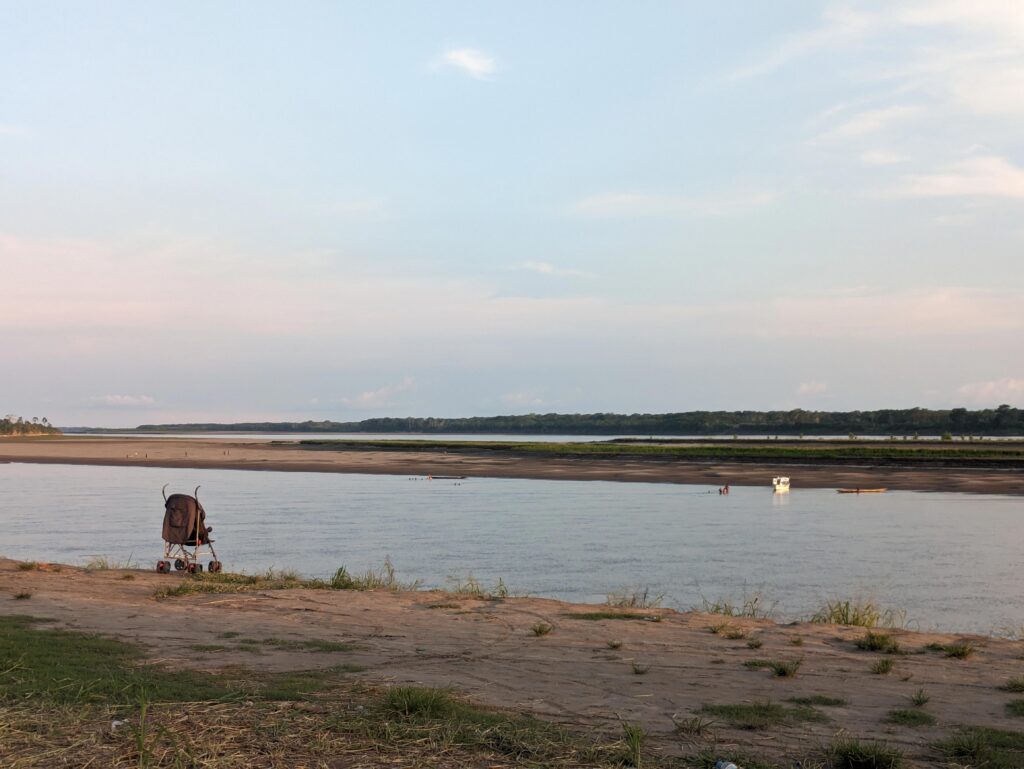By Lisa Labita Woodson
Here is an original poem I wrote following a field visit to study sites in Loreto, Peru, along the Marañón River, a major tributary of the Amazon River. My research focused on the downstream impacts of COVID-19 mitigation efforts on adolescent pregnancy in one of the country’s impoverished regions marked by a high rate of adolescent pregnancy and poor maternal and child health indicators. It outlined pathways that connect the risk of adolescent pregnancy to several ecological system factors from the macro, micro, and individual levels such as poverty, lack of education and health care access, and social and gender norms that limited female autonomy and helped to conserve the practice of early unions. In addition, communities faced new challenges posed by the widespread adoption of technology among adolescents amplified during the pandemic. This poem weaves together different lived experiences of young girls in the Amazon synthesized from data collected from interviews and focus group discussions with adolescents, apus or community leaders, and educators, as well as secondary data sources and field observations.
Heavy rain floods through open windows
puddles across the wooden plank floor
traffic worn from chickens and children
impatient for the season’s end
as they wait like islands on the Marañón.
A pregnant girl rests her swollen body
across the warped metal rocker
careful to balance her weight while
pushing her feet firmly onto the ground
and her back to the chair’s spine.
In the dry season, she had played
voley in the open fields before her
that now pool above her waist
threatening to swallow the bodies of girls
too young to carry to term.
In the secret pleasures of the oscura,
he had exposed her with his body’s weight
and used his cell phone to examine her
pubescent breasts before abandoning her
for otro trabajo down the Marañón.
Yet she still waits, days swollen by tears
she does not cry but floods the haul
of the peke peke used to carry her body
upriver to Nauta’s eroded oil-slicked banks
but not time enough to save her
—and her unborn child.

Please note that this is a sample Gallery entry as it has been previously published.
Woodson, L. L. (2023). The Power of Poetry: Rethinking How We Use Language in Global Health Research. American Journal of Public Health, (0), e1-e2. https://doi.org/10.2105/AJPH.2023.307495


©2024. Made with (❤︎) in Yachayninchik